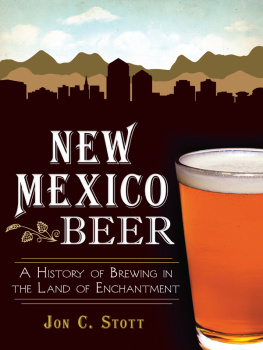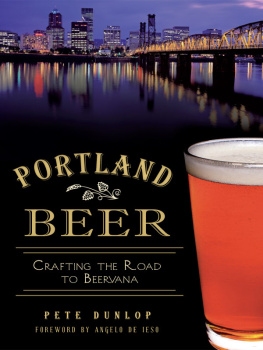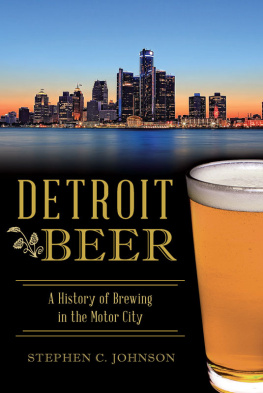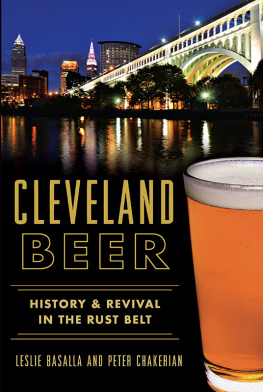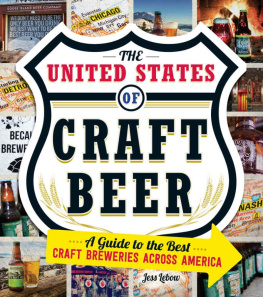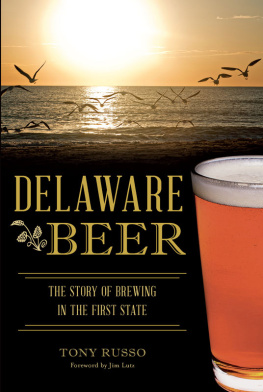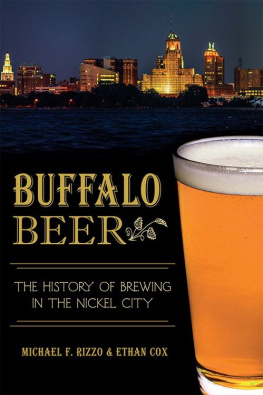Published by American Palate
A Division of The History Press
Charleston, SC
www.historypress.net
Copyright 2016 by Pete Dulin
All rights reserved
Front cover, top: photograph by Roy Inman Photography.
Brewing Company.
First published 2016
e-book edition 2016
ISBN 978.1.43965.825.3
Library of Congress Control Number: 2016941428
print edition ISBN 978.1.46713.561.0
Notice: The information in this book is true and complete to the best of our knowledge. It is offered without guarantee on the part of the author or The History Press. The author and The History Press disclaim all liability in connection with the use of this book.
All rights reserved. No part of this book may be reproduced or transmitted in any form whatsoever without prior written permission from the publisher except in the case of brief quotations embodied in critical articles and reviews.
Preface
Carl Sandburgs poem Happiness, published in his 1916 collection Chicago Poems, explores the meaning of happiness. Professors and famous executives are questioned first in the poem. They shake their heads and smile as though the person asking the question is a fool. The person seeking an answer then spends a Sunday afternoon along the Desplaines River, where a crowd of Hungarians has gathered under the trees with women, children, a keg of beer and an accordion. The poem ends without offering an explicit answer.
Sandburgs poem suggests that happiness involves gathering family and friends, sharing beer and music and spending time together. Beer may not bring happiness, but it can foster a social experience. With beer, we cheer crowning achievements and victories. We bond over tough times and bad news. Beer connects family, friends, co-workers and neighbors, fans of sports and the arts, people from all walks of life.
Like Sandburgs poem, Kansas City Beer involves a river and beer, but the connection is no coincidence or poetic observation. The Missouri River and the origin of Kansas City is less than a mile from my home in the River Market. I moved to the oldest section of Kansas City in mid-September 2015. Only a few months earlier, I began discussion with The History Press about writing a book on the history of brewing in my hometown. I lived within blocks of where the oldest breweries were established and the earliest settlers in the territory once lived.
Writing about Kansas City brewing from the 1850s to the present appealed to me for several reasons. Kansas City Beer expands on my previous book, KC Ale Trail, which profiled twenty-three craft breweries in Greater Kansas City and the surrounding area. Second, Kansas City Beer goes beyond the brewery history and memorabilia covered through 1989 in Hometown Beer, published by H. James Maxwell and Bob Sullivan Jr. Also, much has changed since Boulevard Brewing Company was founded in 1989. Kansas City Beer offers a contemporary, comprehensive look at the citys past and present breweries. Further, I included specific people, events and factors that provide historical context to these breweries.
History is ever-flowing like the water of the Missouri River. If we only focus on a ripple or moment, we miss seeing the grand, historic sweep of life passing downstream. The past is often taken for granted or forgotten. Yet history is always there like the river that wraps around Kansas City. Kansas City Beer explores a local brewing industry that continues to evolve.
While not a historian by trade, I have researched writings, documents and photographs; interviewed sources; and compiled the results. Any errors in the historical record are mine. Entries are organized by chronology based on the brewerys inception.
Records, individual recollections and written accounts of Kansas Citys early beginnings, people and businesses are not complete. Some records and accounts conflict with others regarding dates and information. In some instances, these records (or their absence) complicate the definitive account of what happened and when beyond a doubt. In this book, I compiled a body of work about Kansas Citys brewing history that hopefully wont further muddy the waters for future writers and historians.
Beer bottlers and brewery branches and depots not headquartered in Kansas City played a significant role in packaging and distribution. Names like Pabst Brewing may be familiar to readers. Brief mention will be given to operations that had a major presence. This book doesnt focus on brewery memorabilia. Further, I omitted brewpub chains owned out of state that have or had operations in Kansas City. Kansas City Beer highlights locally owned breweries that made beer in Kansas City from past to present.
My great-uncle on my grandmother Lorettas side of the family once worked at a brewery in Kansas City. The citys brewery and bottling operations once employed hundreds of people. Since Boulevard Brewings launch, another generation has found work at hometown breweries and related fields. Additional breweries and taprooms in Kansas City indicate the promising future of the local beer industry and its growing workforce.
I remember gatherings at summer picnics held for and sponsored by a local Kansas chapter of the Veterans of Foreign Wars. My grandfather Edward Dulin, deceased, and father, Walter Dulin, are both veterans. Beer flowed from taps on delivery trucks at these picnics. Huge metal tubs were full of iced beer and whole watermelons. My siblings and I competed with other kids to see who could plunge their hands into icy waters the longest.
Sandburgs poem Happiness reverberates through this memory. Beer was part of that social backdrop, where family, friends and veterans passed time on a hot summer day in the Midwest. Today, the brewers of beer continue to play an intrinsic role in Kansas Citys economy, community of fellowship and the making of memories.
Acknowledgements
Many people in Kansas City provided direct and indirect support and assistance in the creation of Kansas City Beer. The History Press initially approached Jay Aber of KC Beer Blog with its concept for a book on the history of Kansas City brewing. Unable to take on the project, Jay referred the publisher to me in the late summer of 2015. My research and writing began in earnest in the fall of 2015, working around the Kansas City Royals thrilling post-season race to the 2015 World Series Championship. Commissioning editor Ben Gibson at The History Press kindly ushered me through the publishing houses process.
Thank you to archivists Caitlin Eckard of the Jackson County Historical Society, Anne E. Cox of the State Historical Society of Missouri and senior special collections librarian Jeremy Drouin of the Kansas City Public Library for assistance with obtaining historic images.
Special thanks to Julie Weeks of Boulevard Brewing Company, who supplied historical images of the brewery, provided ongoing assistance and arranged interviews with brewery founder John McDonald, Steven Pauwels, Jeremy Ragonese and Payton Kelly. Thanks to John and the Boulevard Brewing family for all that youve done for Kansas City.


